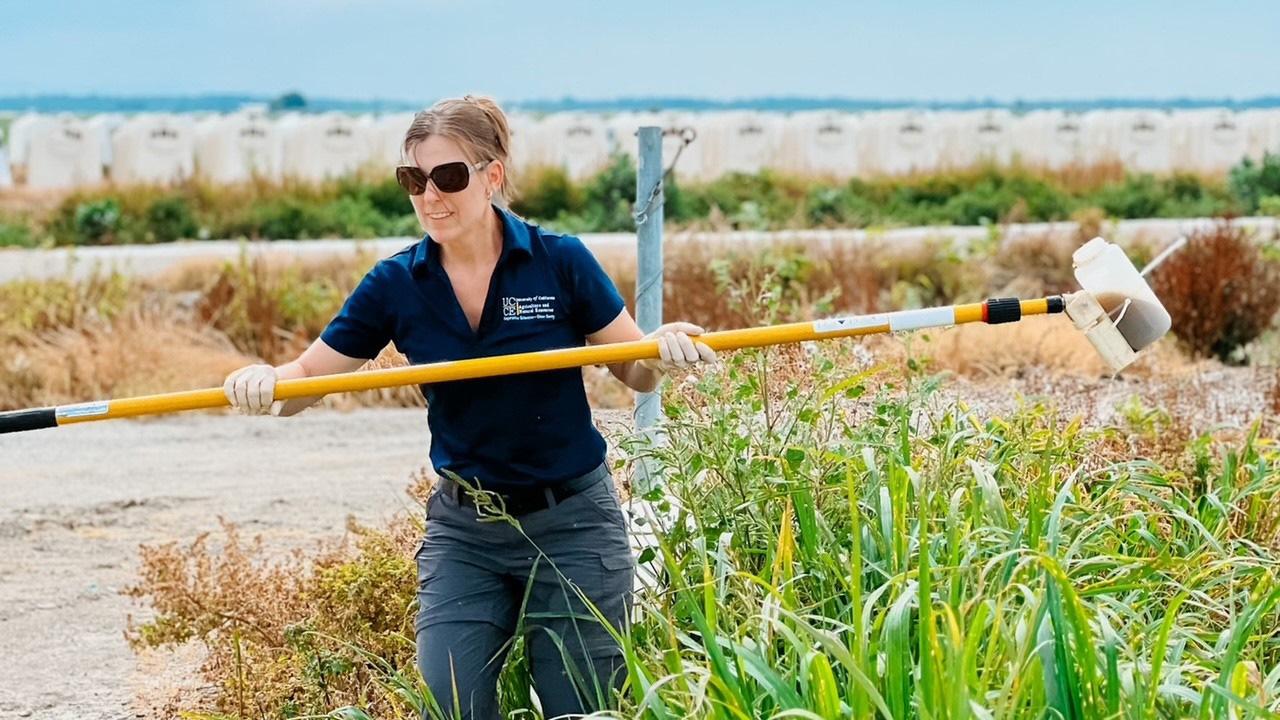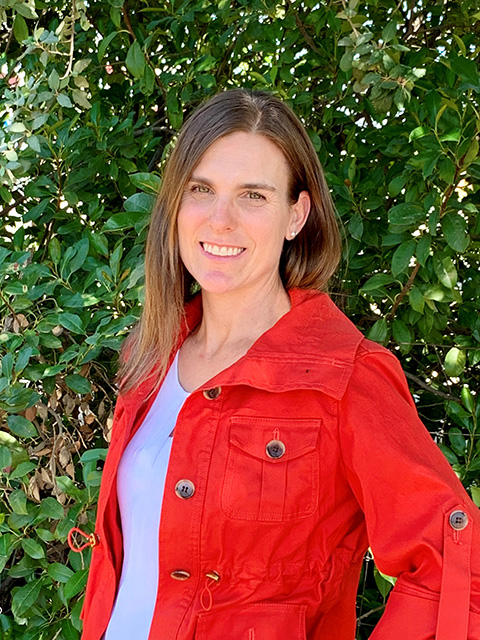
GSR Profile: Betsy Karle – UCCE director in Glenn & Tehama counties
GSR awards are seeds that bear much fruit
Betsy Karle is the dairy advisor and county director for UC Cooperative Extension. She’s based in Glenn County, but provides support to producers from the Oregon border on down throughout the Sacramento Valley. She has been recognized by UC ANR for her outstanding service and teamwork. Dairy creates California’s No. 1 agricultural product, worth $7.6 billion in 2022, according to the state Department of Food and Agriculture.
Q: You received a Graduate Student Research award as a student in the UC Davis Department of Plant Sciences. How did that help you? The Graduate Student Research award gave me the opportunity to take my work off campus to the "real world" and better understand how applied research informs on-the-ground practices. Working with agricultural producers and Cooperative Extension academics drove home the fact that creative solutions are found by understanding a diversity of perspectives.

Q: How did this training help you secure your current job? It opened up the world of applied research and gave me the opportunity to work at the nexus of academia and agricultural production. As a CE dairy advisor, I work with farmers, the industry and academics to find solutions that continuously improve dairy production and sustainability. My UC Davis experience prepared me to work within the research-to-extension continuum and understand the importance of applied research in agriculture and natural resources.
Q: What was your research during your graduate studies at UC Davis? I studied the microbial ecology of the grazed rangeland surrounding a drinking water storage reservoir in California’s Central Valley. We wanted to identify sustainable ways to balance water quality with agriculture production by quantifying the effects of seasonal animal grazing on water quality, and we wanted to implement grazing patterns that reduce the potential risk that microbes could pollute the water.
Q: What outreach and extension research did you undertake as part of your studies? My graduate work gave me the opportunity to work with land managers, livestock producers and CE advisors and specialists to apply science-based solutions to address potential challenges with water quality. The folks who are working on the land have tremendous knowledge to inform our research, and I appreciated the opportunity to give them research results they could use to make management decisions.
Seeds that bear much fruit
Thanks to the James Monroe McDonald Endowment, the Department of Plant Sciences has been able to support dozens of our very best graduate students - scientists-in-training such as Betsy Karle - with awards that supplement their finances. Graduate Student Research awards provide $20,000 yearly for two years to master's degree students, and for four years to doctoral students.
Like Karle, many go on to careers in UC Cooperative Extension. The McDonald Endowment, administered by UC Agricultural and Natural Resources, provides these funds so that our students can translate research into action, making an impact on California and beyond.
In this series, we highlight a few of our GSR award recipients who have gone on to careers supporting healthy food systems, healthy environments, healthy communities and healthy Californians.
Related links
Apply for a GSR award.
Learn about the James Monroe McDonald Endowment, administered by UC ANR, which funds our GSR awards.
Media Resources
- Trina Kleist, UC Davis Department of Plant Sciences, tkleist@ucdavis.edu, (530) 754-6148 or (530) 601-6846
